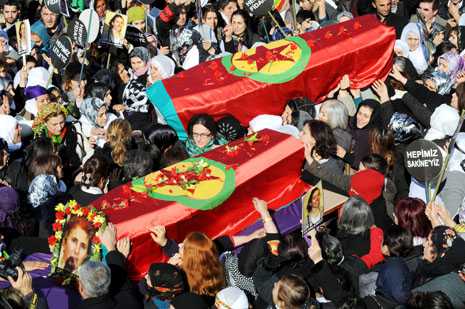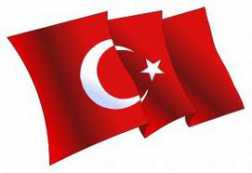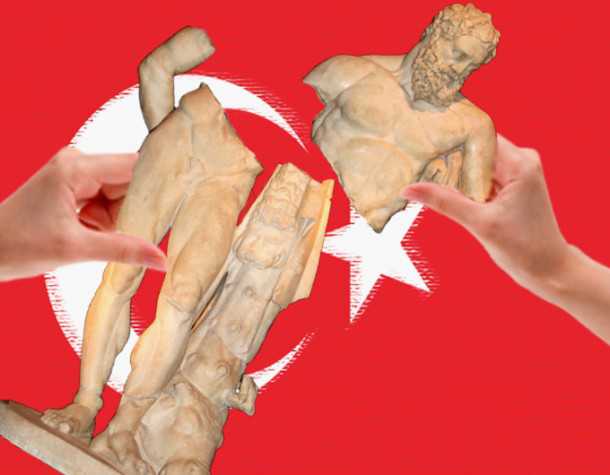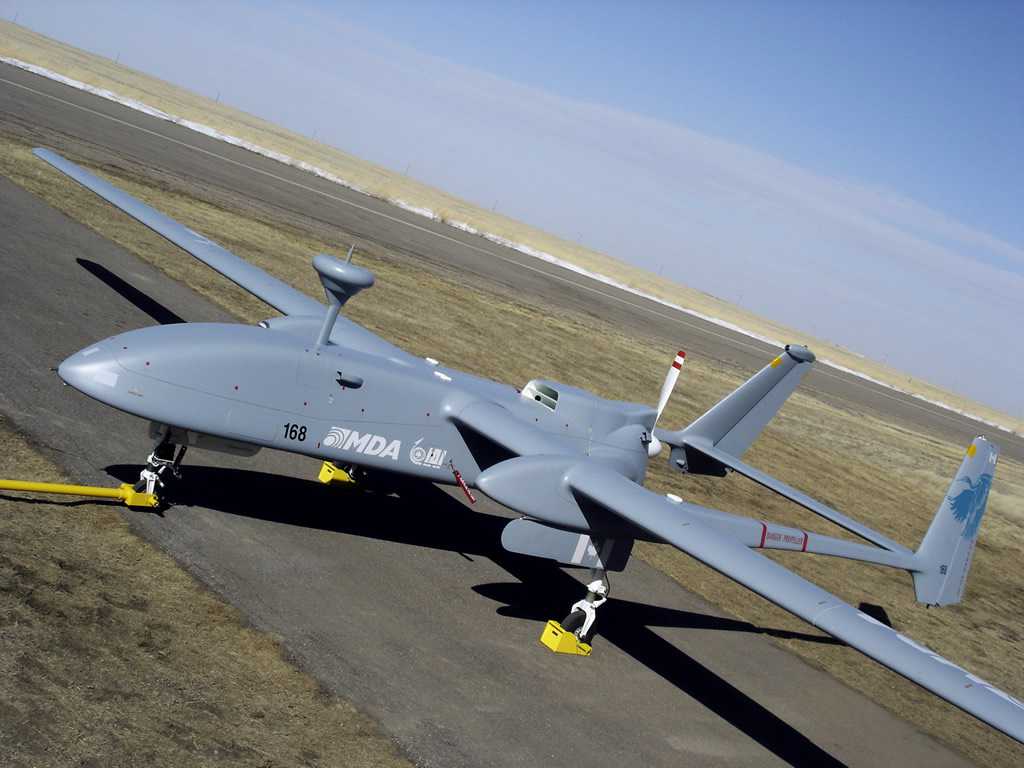By Daren Butler
ISTANBUL | Thu Apr 4, 2013 8:36am EDT
(Reuters) – Turkey’s main pro-Kurdish political party denied on Thursday media reports that jailed Kurdish militant leader Abdullah Ocalan had told his fighters to leave the country without their weapons under a peace plan.
A weapons-free withdrawal by Ocalan’s Kurdistan Workers Party (PKK), as sought by the government, would be seen as a significant step towards ending a conflict which has dragged on for three decades and killed more than 40,000 people.

Credit: Reuters/Murad Sezer
The Yeni Safak daily, which is close to the government, said Ocalan had given the withdrawal message on Wednesday to a delegation from the pro-Kurdish Peace and Democracy Party (BDP) which visited him in his island prison, south of Istanbul.
BDP co-leader Selahattin Demirtas, who was one of the delegates, said Ocalan had prepared a letter on the subject but had not delivered any message on Wednesday.
“First of all I want to state clearly that Mr. Ocalan did not pass on a clear message regarding the withdrawal during our visit yesterday, nor did he give us a letter,” Demirtas told Kurdish television channel Nuce TV in a telephone interview.
“However, he told us he had written a letter on this subject and that it would reach us in one or two days. We expect to receive this letter today or tomorrow. He said the details were in this letter,” Demirtas said.
It was not clear whether the letter would be addressed to the PKK or others, but Demirtas said a reply was expected to be sent to Imrali within a week. He said developments on the withdrawal were expected to become clear next week.
Only Ocalan and a few Turkish officials have direct knowledge of the peace process and details until now have only filtered out through media close to the government.
The PKK declared a ceasefire with Turkey last month in response to an order from Ocalan after months of talks with Ankara to halt a conflict that began in 1984.
The group has demanded legal protection to prevent military attacks on its fighters during their planned departure to northern Iraq, a condition rejected by the government.
Hundreds of PKK militants are estimated to have been killed in clashes with security forces during a previous withdrawal in 1999 after Ocalan’s capture and conviction for treason.
Prime Minister Tayyip Erdogan has said he guarantees there will be no repeat of such fighting. But he opposes legislation, saying the rebels should disarm before heading for Iraq to remove the risk of firefights with Turkish forces.
NO BLOODSHED
Ocalan’s supporters have gathered to celebrate his April 4 birthday in southeast Sanliurfa province, where he was born. In a message read out there on Wednesday evening, he appealed for their support for the process, saying he had fulfilled his role.
“I am calling on everyone who says ‘I am honorable’, whether rich, poor, male, female, young or old, to conform with and develop this (peace) process,” he said in a message read out to the crowd in the district of Halfeti.
His supporters set off fireworks and chanted “Long live the leader Apo (Ocalan)” as the message was read out, the Kurdish Firat news agency reported.
“I hope that not a drop of blood will be shed as this process develops. Nobody should harm another. Everyone should participate in this process with love,” he said.
Later on Thursday, Erdogan will meet the members of a new 63-strong “wise people commission”, made up of academics, journalists and performing artists, established by the government to promote the process nationwide.
A deputy from Erdogan’s ruling AK Party presented on Wednesday a proposal to form a parliamentary commission to assess the peace process. The withdrawal will be monitored by Turkish intelligence and the Kurdistan regional government.
The PKK, designated a terrorist group by Turkey, the United States and European Union, launched its insurgency with the aim of carving out an independent state in mainly Kurdish southeast Turkey, but later moderated its goal to autonomy.
Pro-Kurdish politicians are focused on expanding minority rights and stronger local government for the Kurds, who make up about 20 percent of Turkey’s population of 75 million people.
(Additional reporting by Gulsen Solaker and Jonathon Burch in Ankara; Editing by Nick Tattersall and Alistair Lyon)
via Kurdish party denies Ocalan asked PKK rebels to leave unarmed | Reuters.


 Photos
Photos






